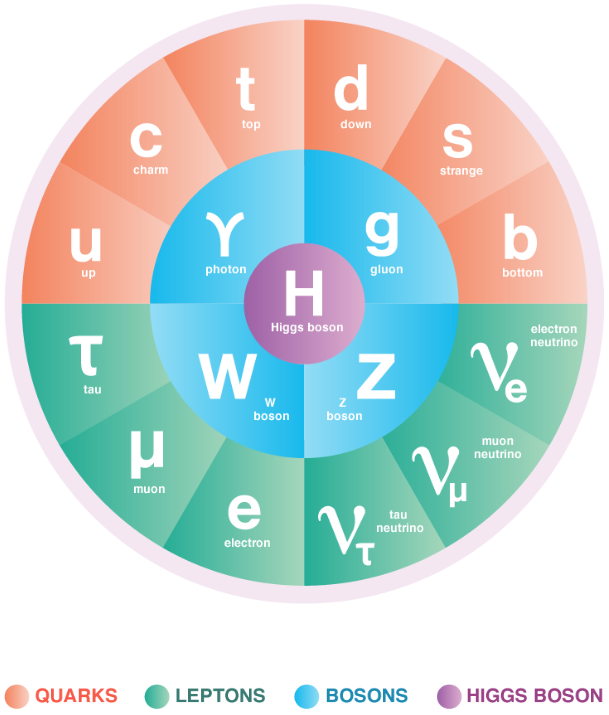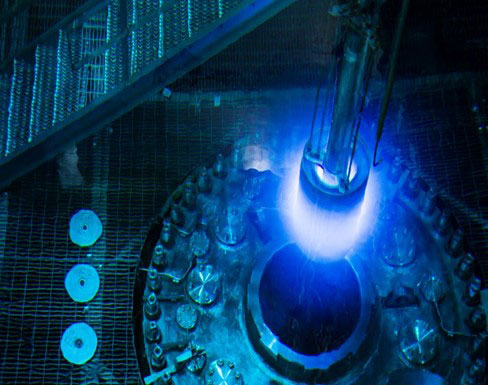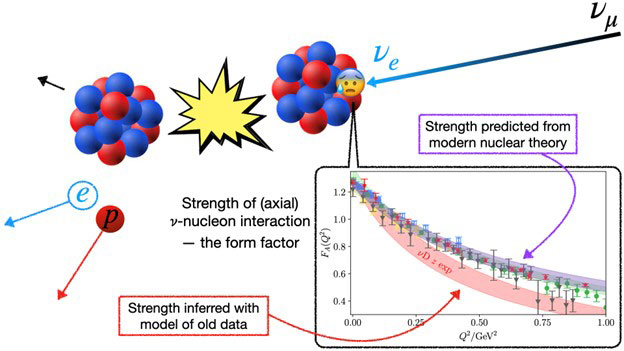Theoretical, Computational, and Interdisciplinary Physics

Image courtesy of Symmetry.
The Standard Model of particle physics classifies all known particles and accurately describes their interactions through the strong, weak, and electromagnetic forces. However, it does not describe gravity or account for dark matter, dark energy, or neutrino oscillations.
Theoretical and computational physics provide the vision and the mathematical and computational framework for understanding and extending the knowledge of particles, forces, space-time, and the universe. A thriving theory program is essential to support current experiments and to identify new directions for high energy physics. Theoretical physicists provide a great deal of assistance to the Energy, Intensity, and Cosmic Frontiers with the in-depth understanding of the underlying theory behind experiments and interpreting the outcomes in context of the theory. Advanced computing tools are necessary for designing, operating, and interpreting experiments and to perform sophisticated scientific simulations that enable discovery in the science drivers and the three experimental frontiers.
Theoretical physicists work to lead interpretation and synthesis of a broad range of experimental results, progress in quantum field theory and possible new frameworks for a deeper understanding of nature, and develop new testable models. As experiments have confronted the Standard Model with increasing complexity, theoretical physics has provided extraordinary advances in calculation techniques, pushing the leading edge of both mathematics and high performance computing. Theorists work closely with experimentalists in the labs, providing a cyclic exchange of information. Because of the determined mathematical framework of particle physics, theorists can guide and inform the choices and directions of experimental programs in accelerator-based and non-accelerator-based research areas to address a specific question. The experimental results then provide information about how the world works and stimulate the development and evolution of theoretical ideas and fundamental underlying theory.

Image courtesy of ATLAS.
Visualization of an actual proton collision within the ATLAS detector at the LHC, showing two muons (long blue lines) and two electrons (short blue lines matching green clusters of energy).
Computational physics is necessary at all stages of HEP experiments—from the construction and development of accelerators and detectors, to theoretical modeling, to data acquisition, to management of data-intensive research and analysis, and to data sharing through complex, efficient networks. In addition, HEP experimental data analysis is integrally dependent on multiscale simulations whether at the Energy, Intensity or Cosmic Frontier, and use of latest supercomputers and associated technology are part of the HEP computing landscape. Finally, state of the science simulation and computational physics can enable scientific discoveries not directly feasible by experiments, observations, or theory. HEP promotes strong internal DOE partnerships and global cooperation among laboratories and universities to address computing and scientific software needs, and encourages preparation for next-generation hardware, data-science software, and data movement techniques relevant to particle physics.
Theoretical and computational physics support a variety of activities and investments that further the science, promote collaboration, and enable discovery. These disciplines work together to push the boundaries of knowledge and provide the best technology available to experimentally search for new physical phenomena concerning the science drivers.



